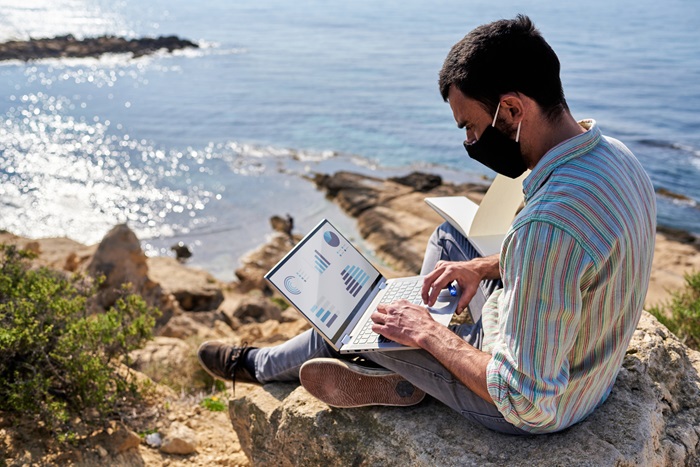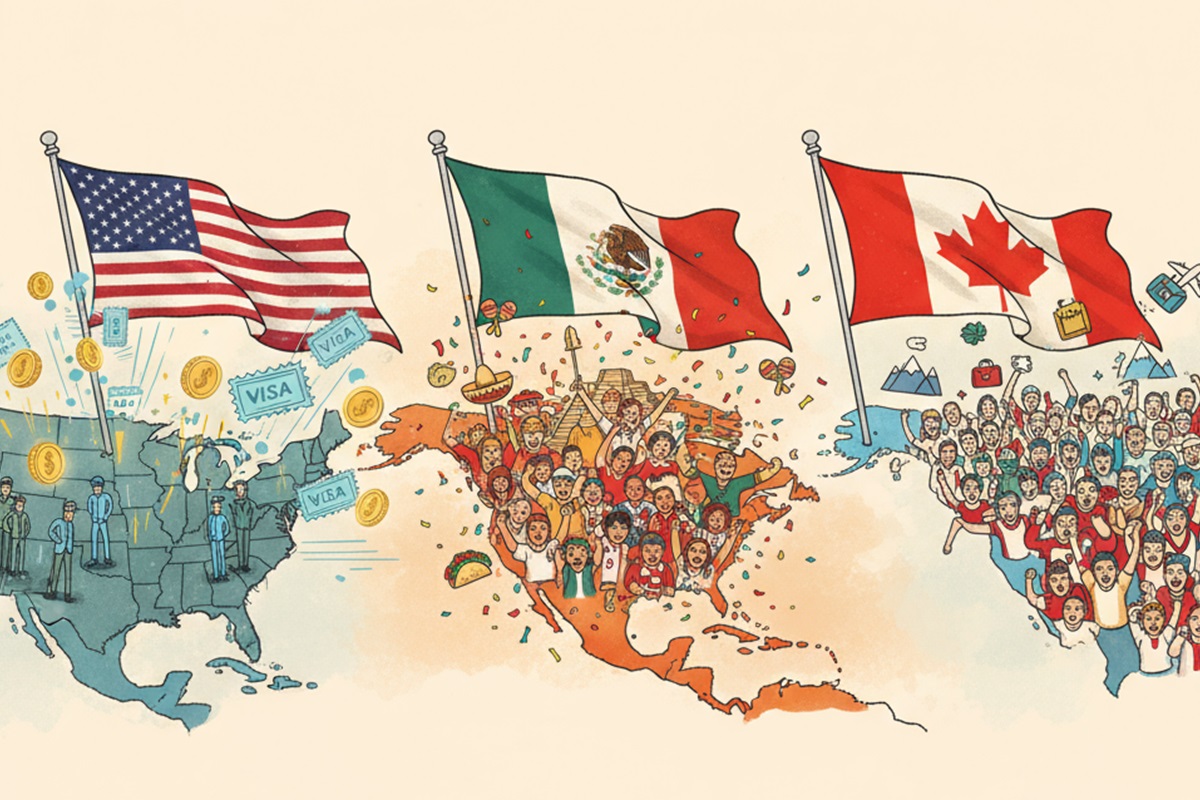In an unprecedented shift in immigration policy, ten Caribbean nations have transformed their shores from mere vacation destinations into thriving hubs for digital professionals. This regional metamorphosis, initiated in 2020, has created a new paradigm for remote work, combining professional productivity with tropical living.
What is a Digital Nomad Visa?
A digital nomad visa represents a revolutionary approach to immigration policy, offering remote workers the legal framework to live abroad while maintaining their professional ties elsewhere. Unlike traditional work visas, these permits specifically target individuals who work remotely for foreign employers or clients, creating a unique category of resident who contributes to the local economy without competing in the domestic job market.
These visas typically prohibit holders from seeking local employment or engaging in domestic business activities, maintaining a clear separation between international remote work and local economic participation.
Advantages of Digital Nomad Visas
These specialized visas offer multiple benefits that traditional immigration pathways don’t provide. For professionals, they present an opportunity to legally reside in paradise while maintaining their careers. Many programs offer significant tax advantages, with several Caribbean nations exempting visa holders from local income tax.
The visas typically extend benefits to family members, allowing children to access local education systems and families to utilize healthcare services. The application processes are streamlined, often entirely online, eliminating the bureaucratic complexity associated with traditional immigration procedures.

The Caribbean Digital Workplace Revolution
Anguilla
Known for its pristine beaches, Anguilla has positioned itself as a tech-forward destination by heavily investing in its WiFi infrastructure. The island’s program stands out for its flexible approach to financial requirements, focusing on an applicant’s overall ability to sustain themselves rather than imposing strict income thresholds. The one-year visa attracts professionals seeking high-speed connectivity in a laid-back tropical setting, with application decisions typically rendered within two weeks.
Antigua and Barbuda
With its archipelago of 365 beaches and sophisticated digital infrastructure, Antigua and Barbuda offers a two-year visa program requiring a minimum annual income of $50,000. The nation has created dedicated coworking spaces and digital hubs, particularly in St. John’s, catering specifically to remote professionals. The program’s success has led to the development of digital nomad communities, fostering professional networking opportunities within a paradise setting.
Barbados
Barbados’s “Welcome Stamp” program has become a model for efficient visa processing, with decisions made within five business days. The island’s strategic location in the Atlantic time zone makes it particularly attractive to North American professionals maintaining regular business hours. The program requires a $50,000 annual income and offers a 12-month stay, with state-of-the-art coworking facilities available throughout Bridgetown and other major areas.
Bermuda
Though technically an Atlantic territory, Bermuda’s “Work from Bermuda” certificate exemplifies administrative efficiency with its five-day processing time. The island combines sophisticated business infrastructure with luxury lifestyle amenities, particularly in Hamilton, where modern coworking spaces seamlessly integrate with upscale beach clubs. The program attracts high-end professionals seeking a balance between productivity and premium island living.
Cayman Islands
Setting the region’s highest financial bar, the Cayman Islands’ program requires applicants to demonstrate annual earnings of at least $100,000 for individuals and $150,000 for couples. The two-year visa reflects the territory’s position as a luxury destination, offering access to world-class amenities and a sophisticated business environment. The program has helped establish the Caymans as a premier destination for senior executives and successful entrepreneurs seeking a tropical base.
Curaçao
The “@Home in Curaçao” program offers a unique European-Caribbean fusion experience. With a six-month initial visa and extension options, it provides flexibility for digital nomads testing the waters of island life. The Dutch influence creates a distinctive cultural atmosphere, while modern infrastructure supports professional needs. The program has no specified minimum income requirement, making it more accessible to early-career professionals.
Dominica
The “Work in Nature” (WIN) program offers an extended 18-month visa term, the longest initial period in the region. Dominica combines affordability with natural beauty, featuring some of the lowest living costs in the Caribbean. The program requires a $50,000 annual income and exempts visa holders from local taxation, making it particularly attractive for cost-conscious professionals seeking long-term arrangements.
Grenada
Maintaining a more traditional application process through its Washington D.C. embassy, Grenada’s program requires an annual income of $37,000. The island’s historic St. George’s district has evolved into a hub for digital professionals, with colonial architecture housing modern coworking spaces. The program offers a one-year visa and attracts professionals seeking a blend of historical charm and modern amenities.
Montserrat
With its small population of 5,000, Montserrat offers a unique proposition for professionals seeking solitude and focus. The island requires a $70,000 annual income for its visa program, which runs for one year with renewal options. The intimate setting has attracted a niche community of digital professionals seeking maximum productivity in a minimally distracting environment.
St. Lucia
Taking a pragmatic approach to financial requirements, St. Lucia evaluates applications based on applicants’ ability to cover local living costs rather than imposing strict income thresholds. This flexibility has made it one of the more accessible programs in the region. The island has developed specialized zones for digital professionals, combining traditional Caribbean charm with modern work facilities.
Economic Impact and Future Outlook
These programs have become powerful economic drivers, attracting high-earning professionals who contribute to local economies through housing, services, and daily expenditure without competing for local jobs. The success has led several nations to consider pathways to permanent residency and citizenship, potentially transforming temporary digital nomads into long-term residents.
The diversity in program requirements, from no specified minimum income to six-figure thresholds, has created a tiered market accommodating various professional levels and lifestyles. Similarly, living costs vary dramatically, from $320 monthly for basic accommodation in some islands to over $2,700 in more developed locations, offering options for different budget levels.
As remote work continues to evolve, these Caribbean initiatives serve as potential models for other regions. They demonstrate that with the right combination of infrastructure, lifestyle amenities, and progressive policy-making, even small island nations can become significant players in the global digital economy. The success of these programs suggests a lasting transformation in how we conceptualize the relationship between location, work, and residence.
Photo of the portrait: Depositphotos








Trackbacks/Pingbacks